
How to Use Essential Oils 101
Share
Have you ever wondered about the power of essential oils? Enjoy our How to Use Essential Oils 101 blog from The Good Stuff. These concentrated plant extracts offer a natural way to enhance your wellbeing and environment. From aromatherapy to topical applications, essential oils can be used in various ways to support your physical and emotional health.
In this guide, we'll explore the fascinating world of essential oils and how you can incorporate them into your daily routine. You'll discover the best practices for using these potent extracts safely and effectively, whether you're looking to reduce stress, improve your skin, or create a more inviting atmosphere in your home. Get ready to unlock the potential of these aromatic wonders and transform your lifestyle with the magic of essential oils.
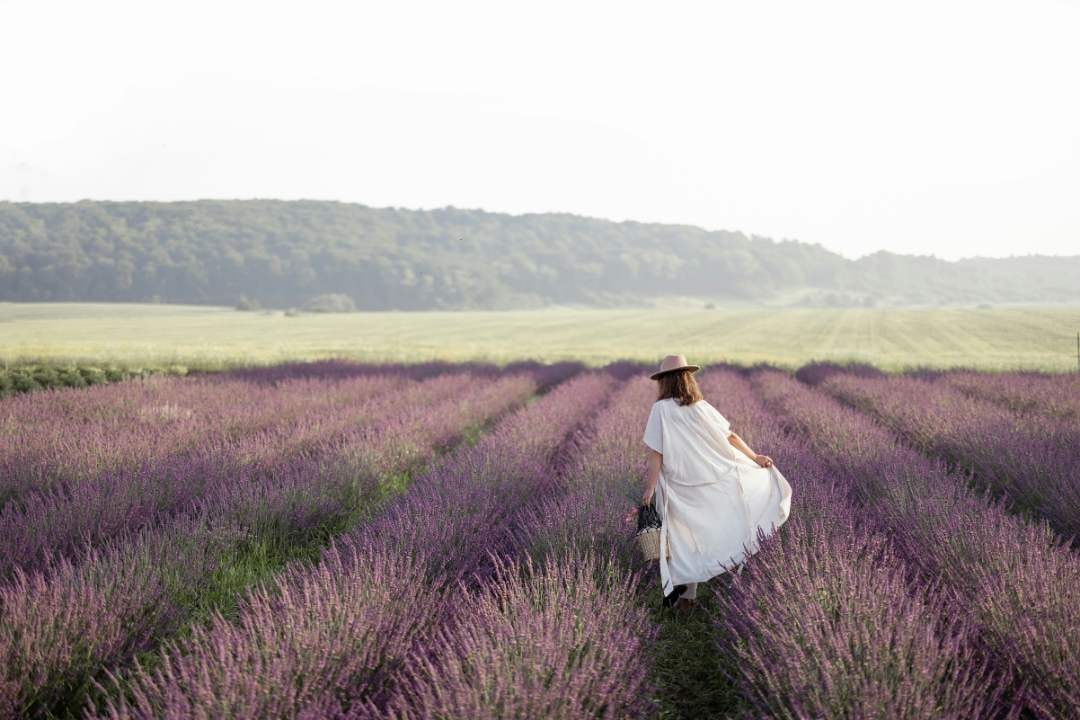
What are Essential Oils?
Essential oils are highly concentrated plant extracts that capture the natural scent and flavour of their source. These potent compounds are obtained through various extraction methods, including steam distillation and cold pressing. The resulting pure essential oil contains the essence of the plant's fragrance and beneficial properties.
Definition and History of Essential Oils
Essential oils are highly concentrated plant extracts that have been cherished for centuries for their medicinal, therapeutic, and spiritual properties. The history of essential oils dates back to ancient civilizations, where they played a crucial role in traditional medicine, rituals, and ceremonies. For instance, the ancient Egyptians used essential oils in their embalming processes and for medicinal purposes, while the Greeks and Romans incorporated them into their daily lives for health and beauty.
The term “essential oil” was first coined by the French chemist René-Maurice Gattefossé in the 1920s. Gattefossé discovered the remarkable healing properties of lavender oil after using it to treat a burn on his hand. This discovery sparked a renewed interest in essential oils' therapeutic potential, leading to modern aromatherapy's development. Today, essential oils are used worldwide for their numerous health benefits, and their popularity continues to grow as more people seek natural and holistic approaches to wellness.
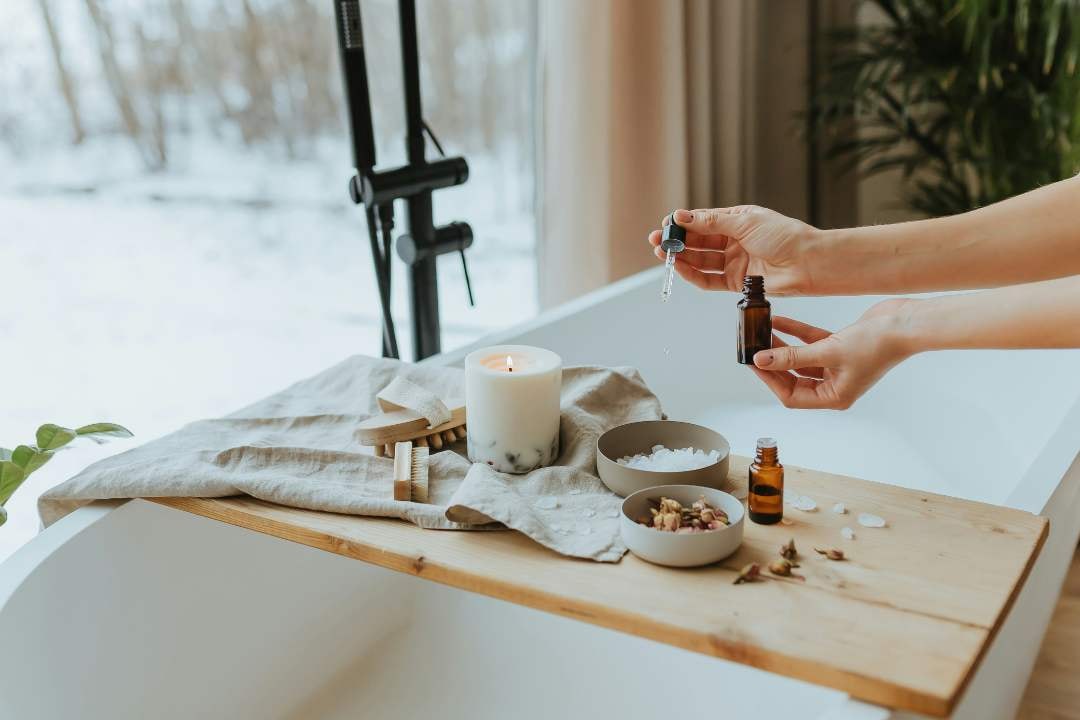
Benefits of Essential Oils
Essential oils offer a wide range of potential benefits for your physical and emotional wellbeing. From promoting relaxation to supporting skin health, these versatile oils can be incorporated into your daily routine in various ways. Here are some popular essential oils and their unique properties:
Lavender Oil
Lavender oil is renowned for its calming properties. It can help:
- Reduce stress and anxiety
- Improve sleep quality
- Soothe minor skin irritations
- Alleviate headaches
Tea Tree Oil
Tea tree oil is prized for its antimicrobial properties. It's effective for:
- Treating acne and blemishes
- Combating fungal infections
- Soothing skin irritations
- Promoting healthy hair and scalp
Peppermint Oil
Peppermint oil is invigorating and refreshing. It can:
- Relieve headaches and muscle pain
- Improve focus and mental clarity
- Aid digestion
- Provide a natural energy boost
Lemon Oil
Lemon oil is uplifting and cleansing. It's useful for:
- Boosting mood and energy
- Purifying air and surfaces
- Supporting digestive health
- Promoting clear, healthy skin
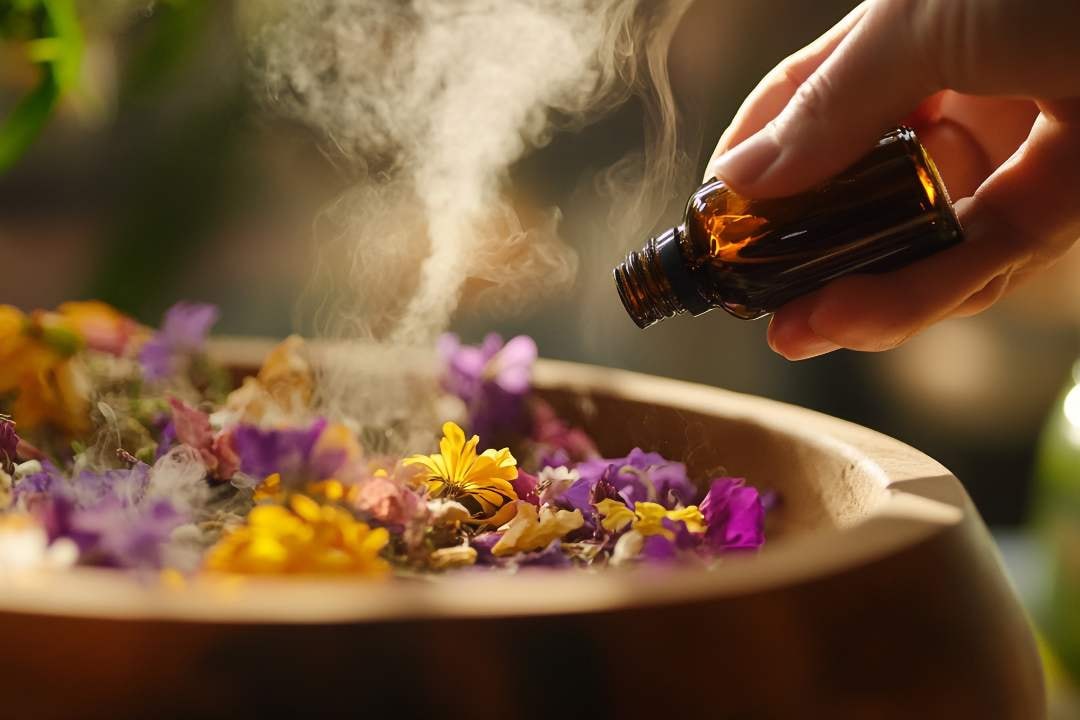
How to Use Essential Oils Safely
When it comes to applying essential oils, safety should always be your top priority. Here are some essential guidelines to follow:
Dilute Essential Oils: Most essential oils are too concentrated to apply directly to the skin. Always dilute them with a carrier oil such as jojoba oil, sweet almond oil, or coconut oil before topical application. A general rule is to use 2-3 drops of essential oil per teaspoon of carrier oil.
Perform a Patch Test: Before using a new essential oil, perform a patch test to check for any allergic reactions. Apply a small amount of diluted oil to the inside of your wrist and wait 24 hours to see if any irritation occurs.
Avoid Ingestion: Most essential oils are not safe to ingest. Avoid taking essential oils internally unless under the guidance of a qualified aromatherapist or integrative medicine specialist.
Use Caution with Citrus Oils: Citrus essential oils, such as lemon, orange, and bergamot, can cause photosensitivity. Avoid sun exposure for at least 12 hours after applying these oils to your skin.
Store Properly: To maintain their potency and prevent degradation, keep your essential oils in dark glass bottles away from direct sunlight and heat.
Be Mindful of Sensitivities: Some people may be more sensitive to certain oils. If you have allergies, asthma, or other health conditions, consult with a healthcare provider before using essential oils.
Use Caution During Pregnancy: Many essential oils should be avoided during pregnancy. Always consult with your healthcare provider before using any essential oils while pregnant or nursing.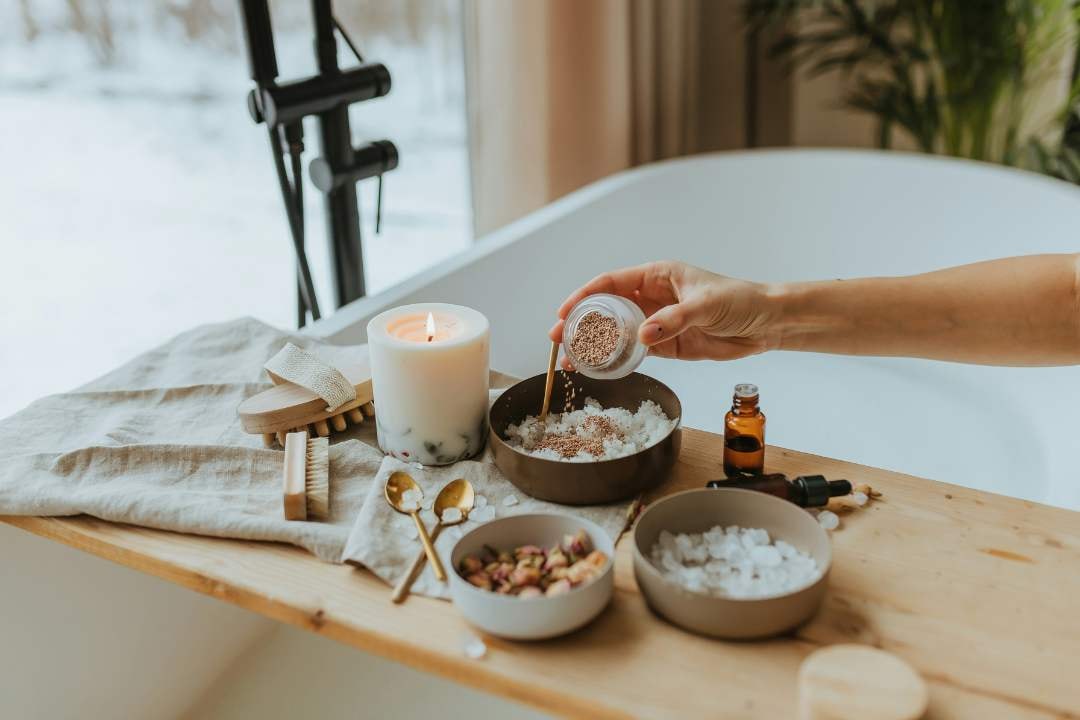
Allergic Reactions and Interactions
While essential oils are generally considered safe, it’s important to know that some individuals may experience allergic reactions or interactions with certain oils. Allergic reactions can range from mild skin irritation to severe anaphylaxis. Symptoms such as redness, itching, swelling, or difficulty breathing after using essential oils should not be ignored. If you experience any of these symptoms, discontinue use immediately and consult a healthcare professional.
Essential oils, like tea tree oil, can interact with medications or exacerbate underlying health conditions. For example, tea tree oil has potent antimicrobial properties, but it can also cause skin irritation in some individuals. Always consult with a healthcare professional before using essential oils, especially if you have a medical condition or are taking medication. This precaution is crucial to use essential oils safely and effectively without compromising your health.
Methods of Using Essential Oils
There are several ways to incorporate essential oils into your daily routine:
Topical Application: Essential oils can be very effective when applied directly to the skin. However, they must be diluted with a carrier oil to prevent skin irritation. Some users prefer to use a rollerball bottle to apply their essential oil blend conveniently.
Aromatherapy: Using a diffuser to disperse essential oils into the air can help create a calming atmosphere.
Baths: Adding a few drops of essential oil to your bath can enhance relaxation and provide therapeutic benefits.
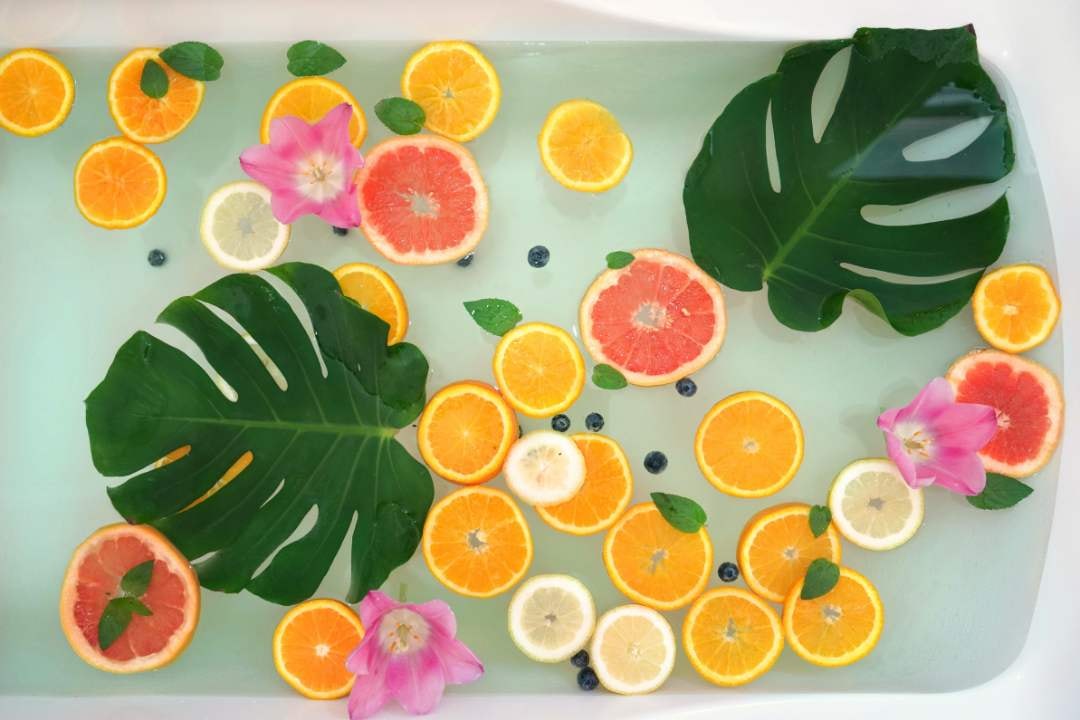
Aromatherapy
Aromatherapy is one of the most popular methods of using essential oils. You can:
- Use an essential oil diffuser to disperse the oils into the air
- Add a few drops to a cotton ball and place it near your pillow for nighttime aromatherapy
- Create a room spray by mixing essential oils with water in a spray bottle
Topical Application
When diluted properly, many essential oils can be applied to the skin:
- Mix with a carrier oil for a soothing massage
- Properly applying essential oils to the skin can enhance the absorption and localization of effects.
- Add to your regular body lotion or facial moisturizer
- Create a relaxing bath by adding a few drops to bath salts
Internal Use
Aromatherapy experts debate the internal use of essential oils. While some essential oils can be used internally in small amounts, others can be toxic or cause adverse reactions. Peppermint oil is known for its digestive benefits and can be used internally in small amounts to aid digestion. However, excessive use of peppermint oil can lead to stomach upset and other issues.
Certain essential oils, such as citrus oils, can be toxic if ingested in large quantities. Citrus oils are often used for their uplifting and cleansing properties, but their internal use should be approached with caution. Always consult with a qualified healthcare professional or certified aromatherapist before using essential oils internally. They can provide guidance on safe dosages and help you avoid potential risks associated with internal use.
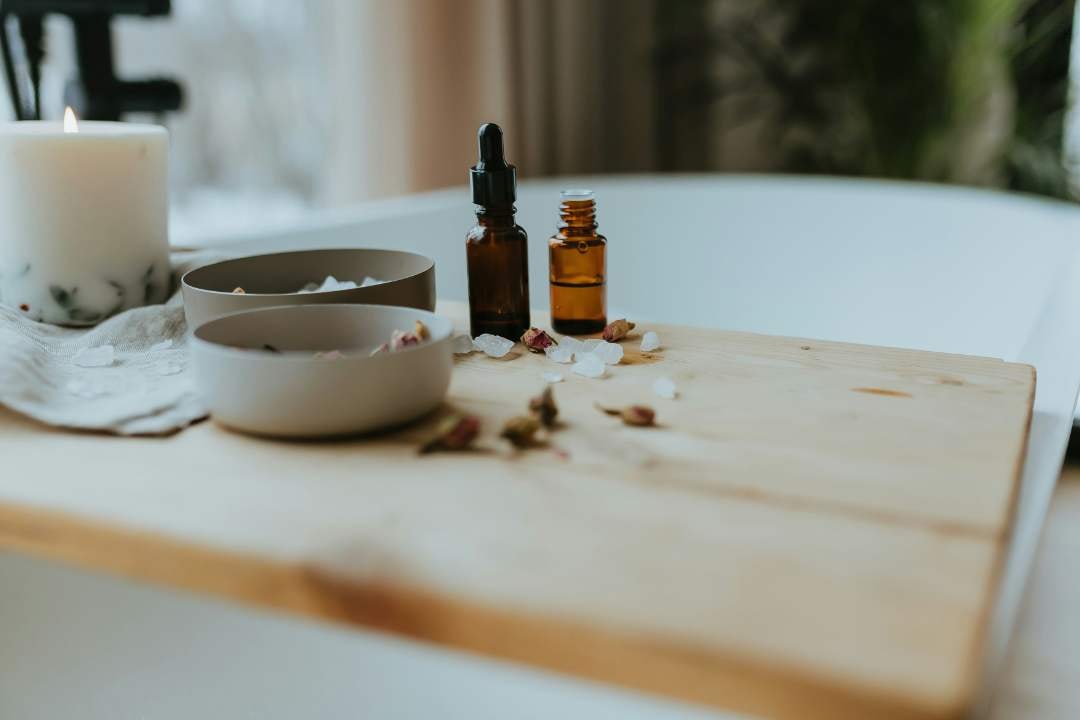
Household Use
Essential oils can also be used around the home:
- Add a few drops to your cleaning solutions for a natural fragrance
- Use in a homemade linen spray to freshen bedding
- Create natural air fresheners by placing a few drops on wooden clothespins
Creating Essential Oil Blends
One of the joys of working with essential oils is creating your own unique, essential oil blend. Here are some tips for mixing essential oils:
- Start with a simple blend of 2-3 oils
- Consider the therapeutic properties you want to achieve
- Pay attention to top, middle, and base notes for a well-rounded scent
- Keep track of your recipes so you can recreate successful blends
Popular essential oil blends include:
- Lavender + Peppermint for headache relief
- Tea Tree + Lemon for cleaning
- Frankincense + Lavender for skin care
Understanding Essential Oil Safety
While essential oils offer many benefits, it's crucial to use them responsibly:
- Never apply undiluted essential oils directly to the skin
- Keep oils away from eyes and mucous membranes
- Some oils may affect the central nervous system or blood pressure, so use with caution
- Essential oils can affect people differently, so always start with small amounts
- If you experience any adverse reactions, discontinue use immediately
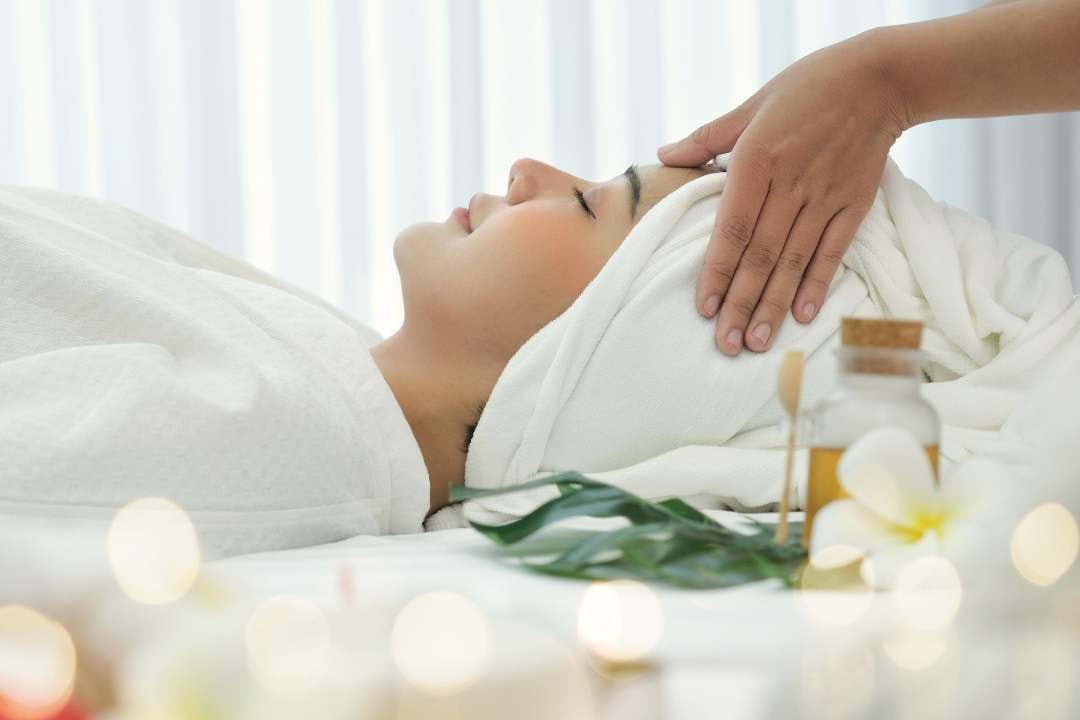
Choosing High-Quality Essential Oils
To ensure you're getting the most benefits from your essential oils:
- Look for 100% pure essential oils with no additives
- Check for the botanical name and country of origin on the label
- Choose oils in dark glass bottles to protect from light degradation
- Be wary of extremely low prices, as quality oils require significant plant material
Essential Oil Storage and Handling
Proper storage and handling of essential oils are crucial to maintaining their quality and safety. Here are some essential tips to ensure your oils remain potent and effective:
Storage Tips
Cool, Dark Place: Store essential oils in a cool, dark place, away from direct sunlight and heat sources. Exposure to light and heat can degrade the oils and reduce their effectiveness.
Dark Glass Bottles: Use dark glass bottles to protect the oils from light and UV radiation. This helps preserve their potency and extends their shelf life.
Child and Pet Safety: Keep essential oils away from children and pets to avoid accidental ingestion. Essential oils are highly concentrated and can be harmful if ingested.
Ventilation: Store essential oils in a well-ventilated area to prevent the buildup of fumes. Proper ventilation ensures that any accidental spills or leaks do not create a hazardous environment.
Dilution: Always use a carrier oil to dilute essential oils before applying them to the skin. This helps prevent skin irritation and ensures safe topical application.
Label Check: Always check the label for any added ingredients or adulterants before using essential oils. High-quality essential oils should be 100% pure with no additives.
Consultation: Consider consulting an integrative medicine expert for guidance on choosing high-quality essential oils. They can provide valuable insights into selecting the best oils for your needs and ensuring their safe use.
By following these storage and handling tips, you can ensure that your essential oils remain effective and safe for use in your wellness routine.
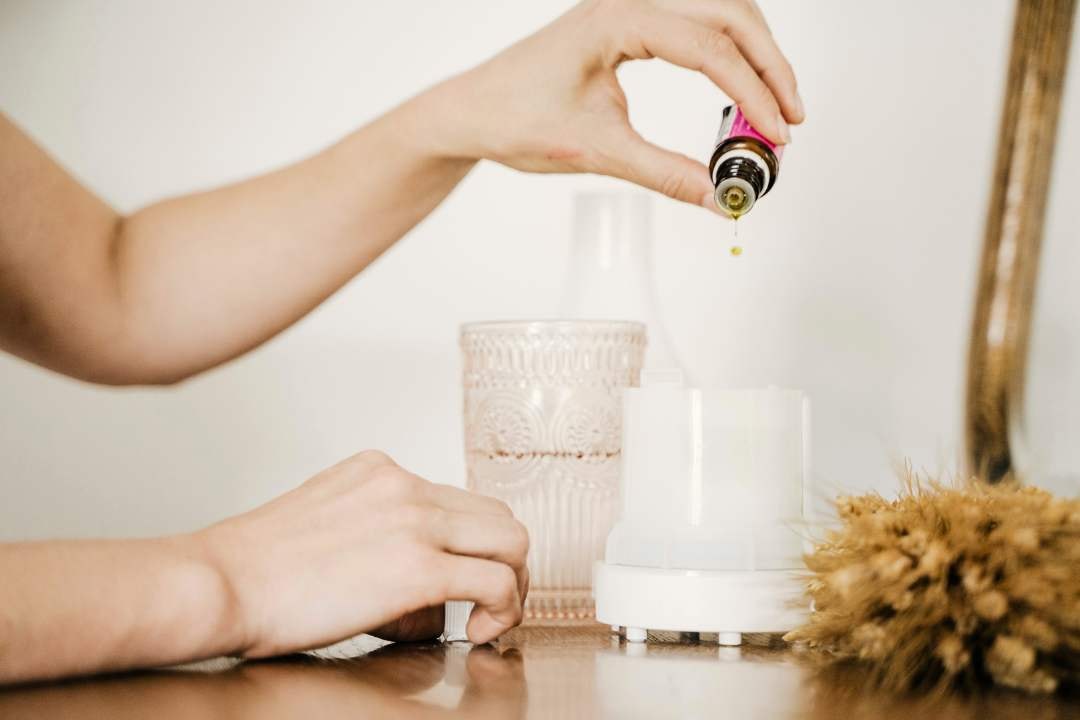
Incorporating Essential Oils into Your Wellness Routine
Essential oils can be a valuable addition to your overall wellness strategy:
- Use lavender or chamomile oil to promote relaxation before bed
- Diffuse peppermint oil to increase alertness during work or study
- Apply diluted tea tree oil to blemishes as part of your skincare routine
- Use citrus oils in your cleaning routine for a natural, uplifting scent
Remember, while essential oils can offer many health benefits, they should complement, not replace, conventional medical care. Always consult with a healthcare provider for serious health concerns.
Conclusion
Essential oils offer a natural and versatile way to enhance your wellbeing and environment. By understanding how to use essential oils safely and effectively, you can harness their potential to support your physical and emotional health. Whether you're looking to relieve stress, improve your skin, or simply create a more inviting home atmosphere, there's an essential oil or blend that can help.
As you explore the world of essential oils, remember to prioritize safety, quality, and personal preferences. With proper knowledge and application, you can transform your daily routine and boost your overall wellness using these concentrated plant extracts.
Start your essential oil journey today and discover the natural power these aromatic wonders can bring to your life! Shop some of South Africa's favourite essentials oil brands including SOIL Organic Essential Oils, Jean Southey Essential Oils, Escentia Essential Oils and Phyto Force Aromatherapy.
